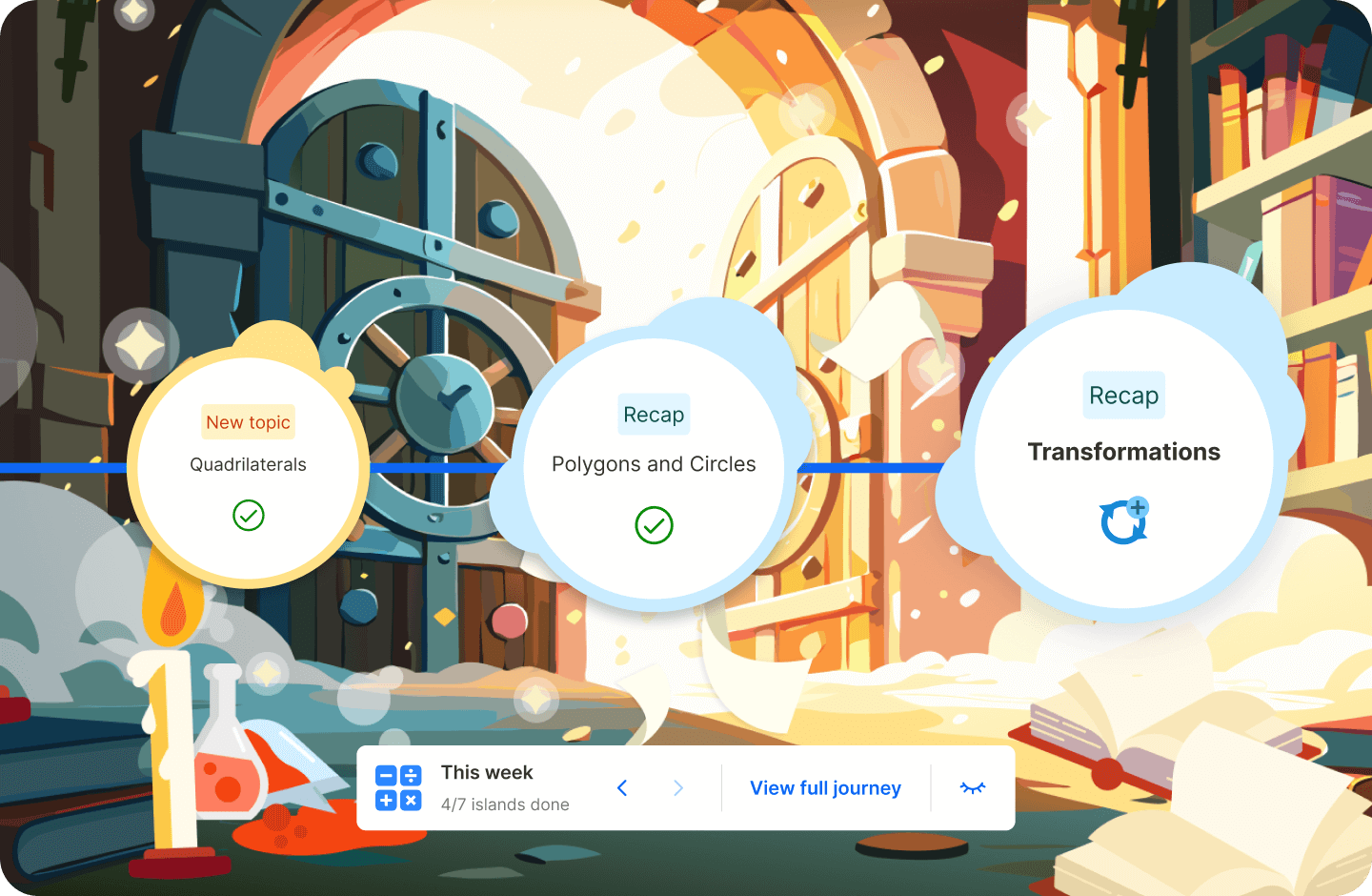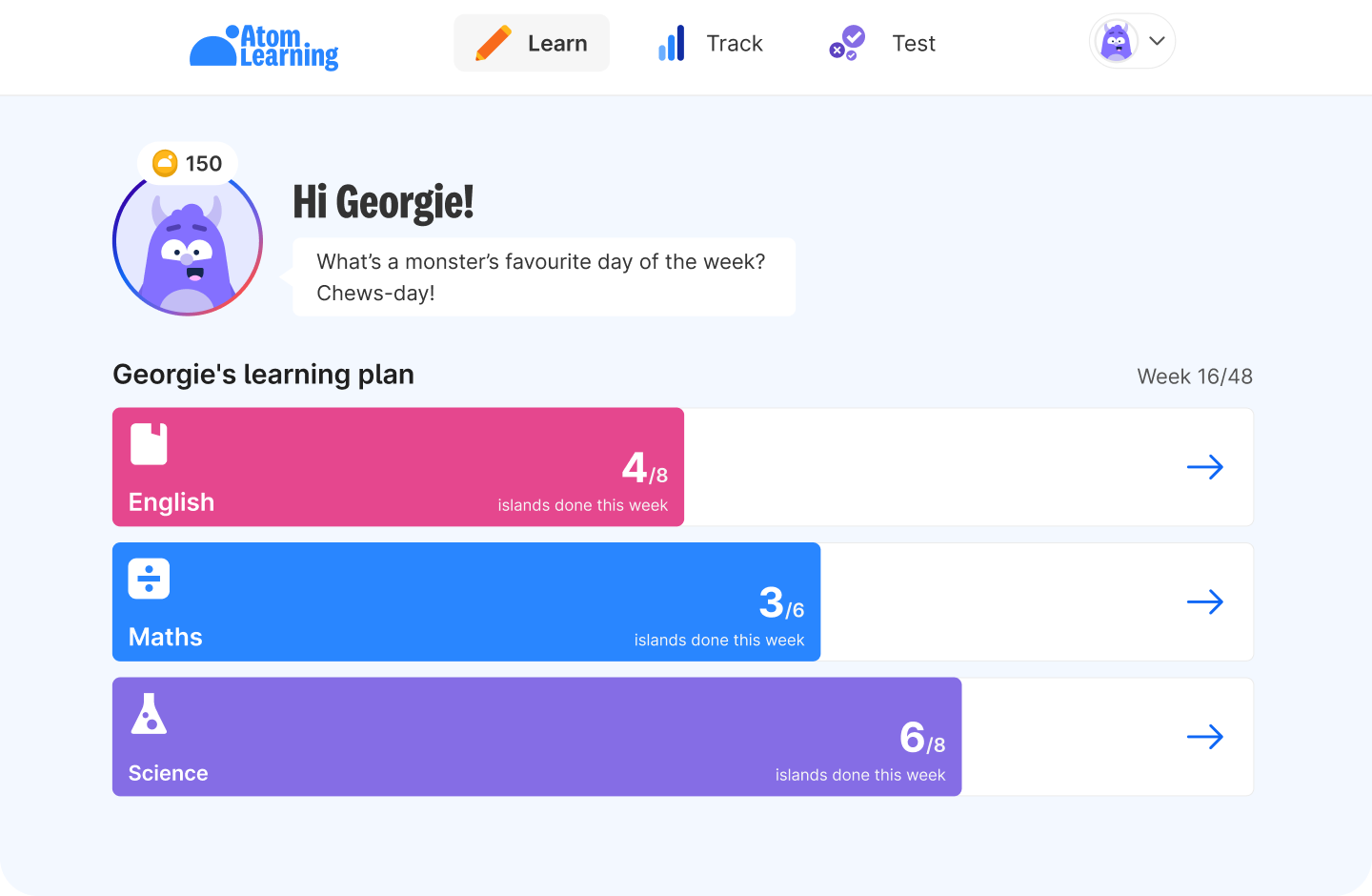Helping your child's maths skills in everyday life

Maths can be a challenging subject for many children, but it’s a necessary skill for everyday life. Getting comfortable with maths and learning how to solve problems builds a great foundation for adulthood.
Maths is taught on every school curriculum, but there's no harm in continuing your child's learning at home. Tackling tricky topics in a comfortable environment can be helpful if your child is struggling in the classroom. Keep reading for our top tips to help your child with maths and show them the value of their skills in everyday life.
Times tables
Being able to quickly multiply numbers is a key skill. Your child will also need to use mental multiplication in school assessments, such as the 11 plus or Year 6 SATs.
Download this free multiplication table to help your child master their times tables. Once they've filled it out, put it up at home in a place they'll see frequently.
Keep your child’s mental ability sharp by testing them on their times tables in short, regular bursts. Make the most of opportunities when they can’t do anything else - such as walking to school or sitting in the car - with quick times table quizzes.
Download table

Calculate the food shop
Make the weekly food shop more enjoyable (and productive!) by getting your child involved in the numbers. These mental maths and estimation activities can support your child's maths skills in a real-life context:
Rounding and estimation
- Estimate the value of individual items, rounded to the nearest pound
- Estimate the value of the final shopping basket at the checkout
Addition and subtraction
- Ask your child to mentally add the cost of items (e.g. how much do the vegetables come to?)
- If you're paying in cash, ask your child how much change you should receive at the checkout
Multiplication and division
- Calculate how much it would cost to buy multiples of the same item (e.g. five bananas, each priced at 18p)
- Compare the costs of different package sizes. If a 500g bag of rice costs £3, but 1kg costs £5, which is better value for money?
Percentages
- Look out for multi-buy savings and discount deals. If a pack of washing tablets costs £8 but there's a 20% off discount, what's the final price?
Cook and bake together
Preparing food and working with recipes involves several skills. As well as improving their maths ability, your child will learn time management as they keep an eye on the clock and manage different cooking times.
Cooking from a recipe involves measuring solids and liquids in grams, millilitres and other units. Taking accurate measurements, converting between units, and calculating sizes are all skills tested on the Key Stage 2 curriculum!
Your child can also use multiplication and division skills by calculating different quantities. Challenge them by choosing a recipe that produces a serving size different to the number of people in your family. Ask them questions such as:
- "If you're making a recipe for two people which requires 250ml of milk, how much would you need to make the recipe for four people?"
- "If you're making a meal for one person but the recipe serves four people, can you calculate the quantities you need for each ingredient?"
£100 off your Atom Home subscription
You have the chance to win £100 off your Atom Home subscription when you sign up to our newsletter.

Board games
Make learning maths at home a fun activity by playing board games together. Monopoly (suitable for age 8+) requires mental maths skills such as counting money and calculating deals. Battleships (suitable for age 7+) can help your child get their head around graphs, coordinates and quadrants.
For more of a challenge, why not learn chess together? In a study of 8–11-year-olds, those learning chess showed more improvement in their problem-solving skills. Chess can also help your child apply logic and reasoning, identify patterns, understand geometry, and use basic arithmetic.
Counting games
If you've ever taken your child on a long car journey, you'll know how hard it is to keep them entertained! Counting games are a great tactic to keep your child entertained and busy while improving maths skills and mental dexterity.
Start by giving them a list of things to look out for, and ask them to count how many they see during the journey. For older children, ask them to tally up multiple items – such as red cars, lorries and motorcycles.
To give this game an extra challenge, give objects different values. For example, a red car might be worth 5 points, but if you see a lorry, you have to subtract 1 point.
Managing money
Introducing your child to physical cash at home can help them improve their mental maths skills while visualising money. While card payments are becoming more popular, teaching your child the value of cash is important to help them grasp how much things are worth.
The great thing about introducing money management from a young age is that you can adjust your questions to your child's age and ability. As they become more fluent in their money skills, you can increase the difficulty of your questions and activities.
Try some of these simple questions to get started:
- Can you show me 30p in as few coins as possible?
- How much change would I receive if I bought a 55p chocolate bar using a £1 coin?
Once your child has grasped basic sums, you can move on to more complex problems using multiplication and division. These are essential for useful life skills, such as splitting the bill and managing a budget!
Daily practice
One simple way to boost your child’s maths skills is to add five extra maths questions to their daily routine.
Learning something once doesn’t guarantee we’ll remember it long-term. We lose more information as time goes on – a process known as The Forgetting Curve.
The best way to slow the process of forgetting is by reviewing learning at regular intervals. So, those five extra maths questions will make all the difference.
It’s like giving your child’s memory a workout. Those five questions allow the brain to form stronger connections to key maths concepts, so they stay fresh, and stay for the long term.
But why just five questions? Wouldn’t 20 be better? Well, our memory thrives on consistency and on small chunks. Even though five doesn’t sound like many, these little-and-often sessions add up over time.
Your child’s recall of the maths methods becomes quicker and more accurate each time they practise. And a firm understanding of addition, subtraction, multiplication and division lays the groundwork for tackling more advanced problems.
Small daily maths exercises also help to nurture your child’s growth mindset. They’ll come to see maths as a skill that, like any other, flourishes with practice and effort. This sense of confidence and self-belief will set them on a path to success for their whole education.
Build strong English, maths and science skills.

Want to support what your child is learning at school, or help them stretch beyond it? Atom gives them the right blend of challenge and support. Help them strengthen foundations, deepen understanding, and grow confident in the subjects that matter most for Key Stage 2 and beyond.
- Follow personalised weekly learning plans that adapt to your child’s level and keep them progressing in English, maths and science.
- Learn through interactive lessons that stretch their thinking and reinforce key skills.
- Track progress topic by topic. See their strengths and pinpoint where they need to improve.
Start your free trial and help your child make real school progress today.
